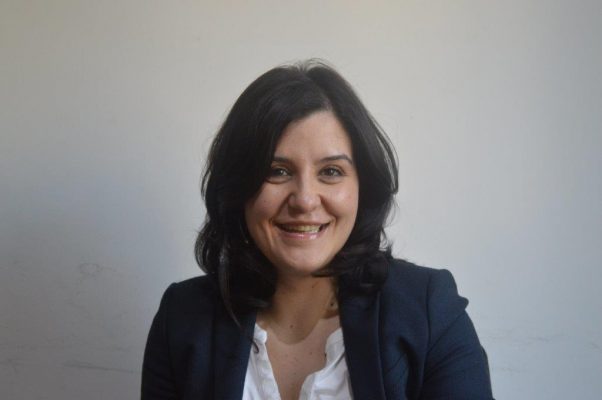Interview with Simonida Kacarska: Regional cooperation for a shared European future
“As think tankers, one of our core roles is to support the policy processes with reliable data and findings based on rigorous analysis. In order to fulfill this role we must learn from other contexts and circumstances. Such exercises help us go beyond the boundaries of our specific context in order to test broader conceptions of public policy.”
EPI has been a staunch supporter of Macedonia’s EU integration and has worked in this field even in the period when the Macedonian membership bid was basically put on hold due to the political situation. How did EPI manage to keep working on EU integration in those times and what has changed since the formation of the new government in Macedonia?
In effect, the hold on the Macedonian accession process was placed largely at the same time with EPI’s establishment (note: end of 2009) so this was something we had in the back of our mind when we planned our work. Yet, we could not have foreseen the difficult political crisis that followed in 2015. Our strategy in these circumstances had been first, to focus on objective and high quality monitoring and to provide relevant and applicable policy products, singling out their European dimension. In addition, we also focused on the aspects of the European accession process which were not halted, such as the use of pre-accession funds and their impact on the transformation processes.

Simonida Kacarska, European Policy Institute – (EPI) Director
Our approach and our standards have not changed since the formation of the new government. We still monitor their steps closely and provide constructive criticism. What has changed, nevertheless, is that the Government has placed an increasing focus on EU and NATO accession (easier said than done though). Currently, we aim to provide as much input as possible in the numerous policy processes such as the Strategy on Public Administration Reform and the Judicial Reform Strategy. In this endeavor, we do support national reforms that are in line with the EU standards and the EU acquis, but through our work we aim to find solutions that shall be adapted to the national context and thus more likely to be sustainable.
Why do you think regional cooperation between think tanks is important?
As think tankers, one of our core roles is to support the policy processes with reliable data and findings based on rigorous analysis. In order to fulfill this role we must learn from other contexts and circumstances. Such exercises help us go beyond the boundaries of our specific context in order to test broader conceptions of public policy. It is specifically through regional cooperation that we have a chance to communicate more broadly with the European as well as international policy research, thus advancing our own position and work. In the case of our region, cooperation is important not only because of our geography, shared past, but also hopefully for a shared European future.
How does EPI benefit from the WeBER project? What are the benefits, and what are the challenges in involving the civil society in PAR?
Public administration, which is in the spotlight of the WeBER projct, is one of the key pillars for the functioning of a democracy. The public administration in Macedonia is highly politicized – as all the administrations in the region. Merit based employment has become an exception rather than a rule and our country has reached is pick being defined as under state capture by the EC. Needless to say, the PAR is a difficult and complex task and it will be a long time before tangible progress can be ascertained. However, as I mentioned, these problems are encountered, to different degrees, by all of the WB countries i.e. (WeBER) partners. Throughout the project cycle we find commonalities, we share common problems and we aim to find solutions, jointly with a broad set of CSOs from all of our countries, our public administrations as well as the European Commission.
Bringing civil servants along with their peers from different countries to discuss public administrations reform with CSO representatives is the added value of this project and with this we aim to mix and match the experience of the civil servants in the public sector and the expertise of the CSOs in different sectors. Moreover the re-granting scheme EPI manages is also out of great importance since it creates multipliers and it fosters ownership and engagement among the grantees.
In your opinion, what are the biggest challenges for greater regional CSO cooperation? What would you recommend to peer organizations in other countries?
The challenges for regional CSO cooperation stem in my opinion largely from the largely difficult situation in which CSOs are in terms of the predictability of their work and funding circumstances. Most of us struggle financially and with short–term projects making it very difficult to discuss and plan long term cooperation across national boundaries. Yet, as we know when possible such efforts are much more effective. Hence, I would recommend to peers to look carefully for their partner organizations in the region, but also at the EU level because together we are more relevant for policy makers and donors as well.
EPI is currently presiding over the Council of the TEN Network. Can you tell us something about the plans or ideas you have for the activities of the Network?
We are very glad that the TEN network was recognized by national actors, but also by international stakeholders and EU stakeholders as a credible and relevant actor. We are confident it has great potential and that the comparative advantage of each of the organizations can strengthen the network as a whole. In this manner, we want to change how we see regional CSO cooperation – for us its a cummulative effort of combined expertise for maximized impact, rather than regional competitors. One of the fruitful results of this cooperation was the BENCHER project, supported by the European Fund for the Balkans and the Open Society Foundations. The project came as a follow up to the independent comparative regional analysis of the EC country reports of 2015. Building upon our previous work, BENCHER is going one step further, as we are analyzing the benchmarking mechanism and its effectiveness. We will present our work on country events and advocacy meetings in the region, as well as in several EU member states and in Brussels. In this process we aim to provide tailormade, comprehensive and specific recommendations to advance the benchmarking mechanism in order to strengthen the transformative role of the EU accession process.
*This interview is produced as a part of the second issue of the TEN Newsletter.

